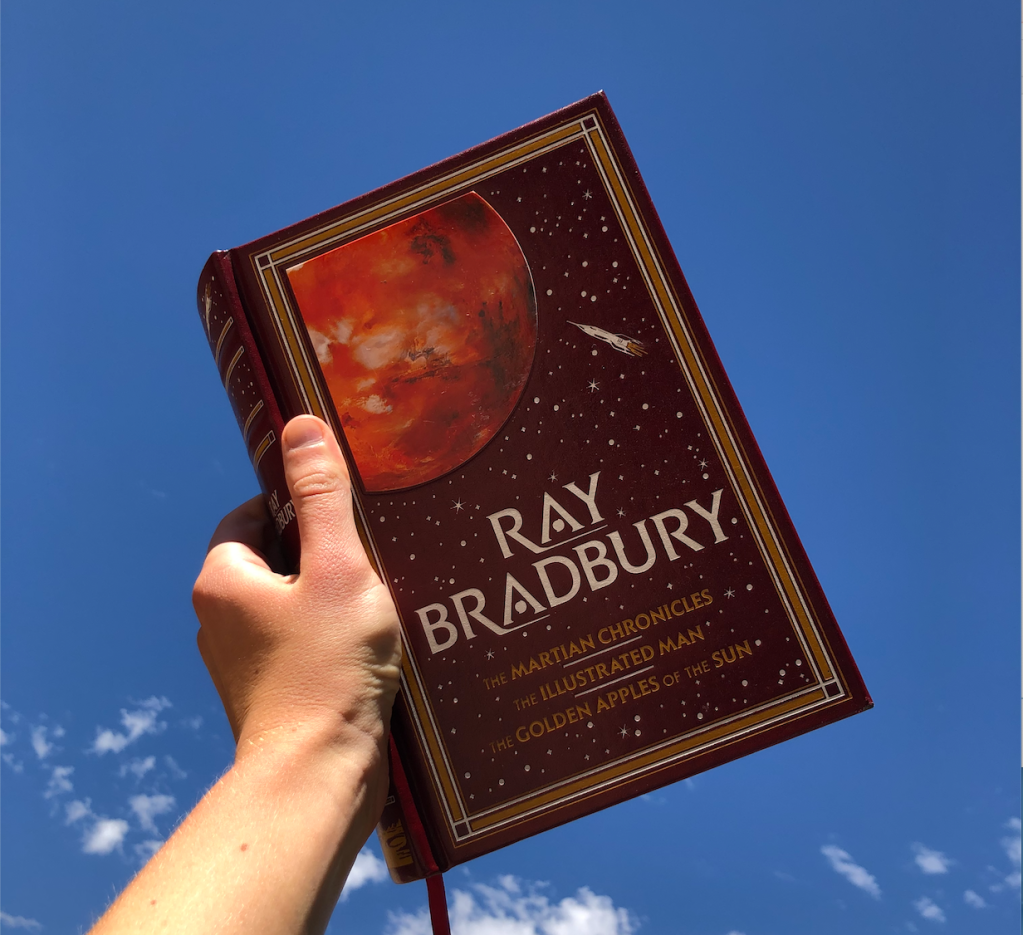
Does anyone else miss summer reading programs? Although I continue to read more during the summer than any other time of year, there was a great satisfaction to completing reading challenges and earning prizes which adult life sadly lacks.
Still, I thought I would share what I’ve been reading lately—that is, when I am not frantically researching for my master’s thesis. This July, I am trying to cultivate a reading list which will prove both timelessly valuable and culturally relevant.
Short Story: “The Other Foot” by Ray Bradbury
This heart-wrenching story, written in the years leading up to the American Civil Rights movement, presents a stunning consideration of race and reconciliation. Using science-fiction, Bradbury paints a painfully realistic and dynamic portrait of prejudice, justice, and mercy which is as deserving of discussion now as when originally published in the 1950s. This and other selected stories from The Illustrated Man can be accessed online here.
Poetry: “East Coker” by T.S. Eliot
As COVID-19 continues to spread and to become further politicised, it is well worth considering the cycles of time and culture. Illness, contention, and fear are, sadly, nothing new under the sun. As Eliot writes, “the whole earth is our hospital,” yet the “wounded surgeon” continues—even now—to be our hope. Written amidst the death and destruction of WWII, this poem speaks powerfully to both the horror and hope of human life. I highly recommend this gorgeous reading by Jeremy Irons.
Essay: “The Suicide of Thought” by G.K. Chesterton
A man ahead of his time, this essay reminds readers that postmodernism is no intellectual island and considers whether intellectual humility has gone too far in producing a movement of deconstruction which destroys itself—not unlike a snake consuming it own tail. In a society which is pondering whether mathematics are sexist, Chesterton’s observations seem prophetic: “We are on the road to producing a race of men too mentally modest to believe in the multiplication table.” (Read it online here.)
Novel: Fahrenheit 451 by Ray Bradbury
Excuse my adding another Bradbury, but I love him passionately. This banned book about banned books presents an alternative consideration of cancel culture, in which books and authors are eliminated in an effort to avoid offending a multitude of minorities. “Authors, full of evil thoughts, lock up your typewriters . . . A book is a loaded gun in the house next door. Burn it.” (I have extra copies for anyone local who would like to borrow one!)
Novella: The Great Divorce by C.S. Lewis
Although brief enough to read in one sitting, this volume is remarkably deep. With each reading, another chapter absorbs my attention. This time, I was struck most of all by Lewis’ imaginative commentary on individuals clinging to their assumed autonomy above all else, even at the cost of their religious witness or communal harmony. (Another one I have multiples of, in case anyone local needs to borrow one.)
Autobiography: Narrative of the Life of Frederick Douglass, an American Slave
As Douglass was an outstanding orator, I am primarily listening to this book on Audible. An incredible and important book, Douglass shares the horrors of American slavery with intense clarity and insight, as well as articulates and demonstrates the necessity of faith, literacy, and community in overcoming racism. I also highly recommend the episode of BBC’s “In Our Time,” in which Douglass’ life and legacy are discussed by leading scholars.
Old Testament: Esther
Esther has long been my favourite female Bible character. She is the embodiment of “strength and dignity,” a woman of both conviction and compassion. The story of Esther reminds readers that political unrest and deadly prejudice have always been characteristic of fallen humanity. Esther, however, also serves as a reminder that through dedicated prayer, intentional preparation, and winsome persuasion, we can be examples of grace and truth “for such a time as this.”
New Testament: 1 Corinthians
Throughout this epistle, Paul consistently emphasises that members of the Body of Christ—acting in charity, in holy love—are to seek the protection of weaker members’ consciences and well-being. In an era in which political affiliation is easily confused with spiritual identity, it seems fitting and imperative to return to scripture. Paul here sets an example of humility, surrendering his rights for the benefit of his beloved. The situations we face today are different, but the heart behind them—the heart of Christ—remains the same.
Have any of these selections made your summer list? I would love to hear from you in the comments! I’ve done my best to include a variety of genres and forms and would value any and all feedback and recommendations. I should add that quite a few of my selections are rereads, as I find that in a constantly changing world, returning to the books which formed me and continue to reform me is both consoling and convicting.









Leave a comment